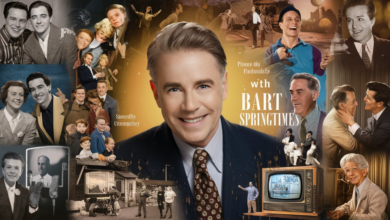Famous people with bipolar disorder have shown the world that mental health challenges can affect anyone, no matter how successful they are. From actors to musicians, many well-known individuals live with bipolar disorder, proving that this condition doesn’t define their worth or ability to thrive in their careers. Understanding the lives of famous people with bipolar disorder can help reduce the stigma around mental health issues and encourage others to seek help and support.
Bipolar disorder is a condition that causes extreme mood swings, from very high energy levels to deep periods of depression. While it can be difficult to manage, famous people with bipolar disorder have shown that it’s possible to lead successful, fulfilling lives. Let’s take a closer look at some of these well-known individuals and how they manage their condition.
Who Are the Famous People with Bipolar Disorder
Famous people with bipolar disorder are individuals who have shared their experiences with this mental health condition. Bipolar disorder can affect anyone, regardless of their career or status. Some well-known people have openly talked about their struggles to help others understand the condition better. These celebrities include musicians, actors, and even athletes.
Many of these famous people live with the extreme mood swings that are common in bipolar disorder. These mood swings can lead to periods of high energy and creativity, followed by times of deep sadness. Despite the challenges, these individuals have continued to inspire many through their work and their openness about mental health.
Subheading: Famous Celebrities Who Have Bipolar Disorder
- Demi Lovato: Known for her singing career, Demi has been open about her struggles with bipolar disorder.
- Carrie Fisher: The late actress, best known for her role as Princess Leia, shared her experiences with the world.
- Mariah Carey: The famous singer has also revealed her diagnosis, helping to spread awareness.
- Kanye West: The rapper and entrepreneur has discussed his experiences with the condition in interviews.
The Truth Behind Bipolar Disorder in Famous People

Bipolar disorder in famous people is often misunderstood. People see the success, fame, and talent, but they might not see the challenges these individuals face in their personal lives. The truth is that mental health issues like bipolar disorder can impact anyone, and even those in the spotlight are not immune. These celebrities struggle with the same difficulties that anyone with bipolar disorder faces, including finding balance and managing their emotions.
Living with bipolar disorder can be hard, but many of these famous people have found ways to cope. Some use therapy and medication, while others turn to creative outlets like music and acting to help them express their feelings. The most important thing is that they are open about their struggles, helping others feel less alone.
How Famous People with Bipolar Disorder Manage Their Mental Health
Famous people with bipolar disorder often manage their mental health in different ways. Some focus on their work to stay distracted, while others take time off to rest and recharge. The key to managing bipolar disorder is finding a balance that works for each individual. For some, this means sticking to a routine or seeking professional help when needed.
Therapy and counseling are often important tools in managing bipolar disorder. It helps people talk through their feelings and find ways to cope with their moods. For others, medication is an important part of the treatment plan, as it helps regulate their emotions. It’s important for everyone, not just famous people, to take their mental health seriously and seek the help they need.
The Struggles and Triumphs of Famous People with Bipolar Disorder

While living with bipolar disorder is difficult, many famous people have shared their triumphs and successes. Despite the challenges, these individuals have continued to create amazing works of art, music, and films. Their ability to push through their struggles and achieve great things is a testament to their strength and determination.
The struggles are real, but the triumphs are even more inspiring. Many famous people use their platforms to spread awareness about mental health, showing others that it’s okay to seek help. They are proof that even with bipolar disorder, it is possible to live a fulfilling life and make a positive impact on the world.
Conclusion
Famous people with bipolar disorder are showing the world that mental health challenges do not have to limit success. By sharing their stories, they help reduce the stigma surrounding mental health issues. These celebrities remind us that it’s okay to have struggles, and it’s important to talk about them openly. The more we understand mental health, the more we can support those who are dealing with it.
If you or someone you know is struggling with bipolar disorder, it’s important to seek help. There are many resources available, and you are never alone. Just like these famous people, you can find ways to manage your mental health and live a happy, successful life.
FAQs
Q: What is bipolar disorder
A: Bipolar disorder is a mental health condition where people experience extreme mood swings, from high energy to deep sadness.
Q: Can famous people with bipolar disorder still succeed in their careers
A: Yes, many famous people with bipolar disorder have continued to achieve great success in their careers, despite the challenges of the condition.
Q: What treatments do famous people with bipolar disorder use
A: Famous people often use therapy, medication, and creative outlets like music or acting to manage their bipolar disorder.
Q: Is bipolar disorder a common condition
A: Yes, bipolar disorder affects many people worldwide, including celebrities and famous public figures.
Q: How can I support someone with bipolar disorder
A: You can support someone with bipolar disorder by being understanding, offering a listening ear, and encouraging them to seek professional help.



